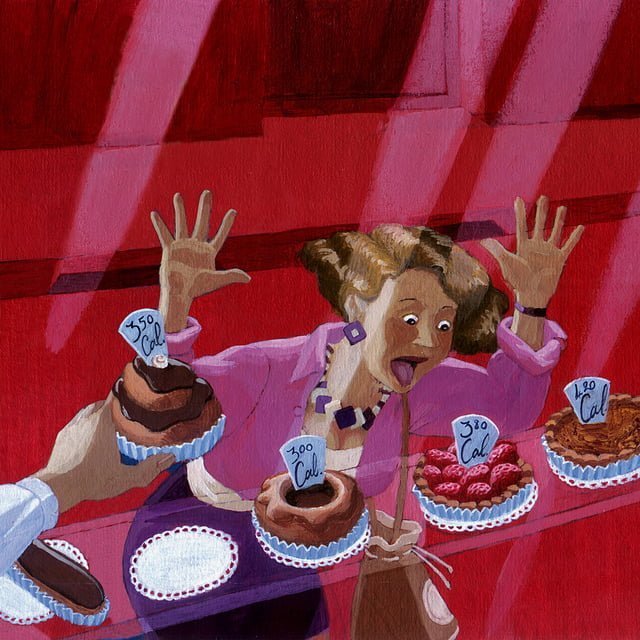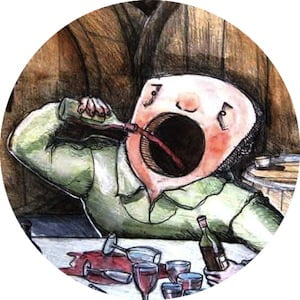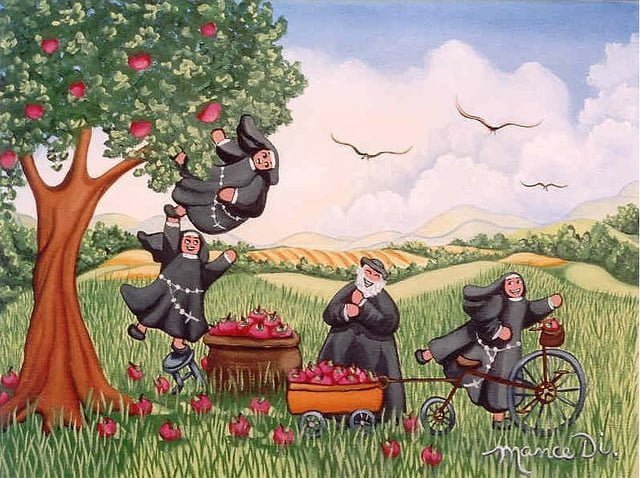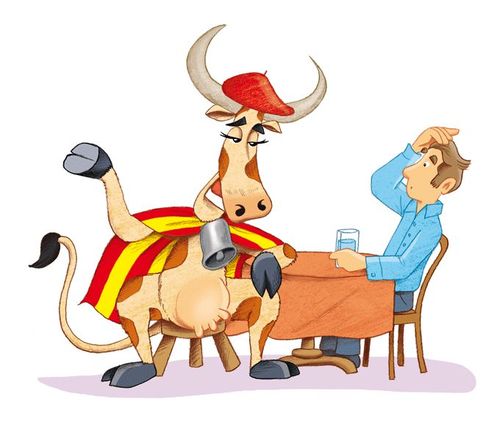Unlocking French language: think like the French, master idiomatic expressions
Idiomatic expressions in any language give an integral insight into the thoughts and cultural aspects of the people who speak that language.
This is why I love learning new expressions in the French language!
Every time I hear a new idiom, I understand French culture just that little bit more as the expressions create stories and imagery which are identifiable to a way of life. So, the question is, how to think like a French person?
Our thoughts are spoken everyday through our langue, so listed below are my impressions of some well-known French expressions.
Tomber dans les pommes (lit. To fall in apples): To faint.
The immediate image that comes to me when saying this expression is of an orchardist on a ladder, who faints and luckily lands in a pile of apples. But what makes this expression typically French is the thought of that such orchardist making cider out of all these apples, and consequently falling due to over-consumption. The latter is more likely, I think.
Faire du lèche vitrine (lit. To window-lick): To go window shopping.

In English, this activity is more a pastime. One casually goes on outings to look at fashions, peering at them from a justified distance and admiring their presence.
But the French are more realistic about this situation. They understand that when you see that amazing dress in the window that you really want, you don’t just stand there. You hold your hands to the window, inching closer and closer until you are standing so close that your breath is fogging up your vision, resulting in you licking the glass… well, maybe not that far.
Avoir un chat dans la gorge (lit. To have a cat in your throat): To have a frog in your throat.
It seems strange that to be unable to speak clearly means that you should have either of these two animals stuck in your throat. Although, it seems even stranger that an English speaker should have an iconic French animal in theirs, and the French have a furry friend in theirs.
It seems clearer to me when I think of the fact that cats have fur, and therefore the problem identified could be the fur ball.
 Boire comme un trou (lit. To drink like a hole): To get smashed.
Boire comme un trou (lit. To drink like a hole): To get smashed.
Maybe one cannot drink exactly like a ‘hole’, as how does a hole exist as an object which can lift drinkable objects to consume?
However, to drink as though one has a hole through their body, a bottomless pit perhaps, creates a fantastic image.
Ah la vache! (lit. Oh the cow!): Oh my gosh!
Let’s be honest, cows are an integral part of French society. These chubby creatures sneak into the French language as much as Dieu does.
The use of la vache does not stop as a noun, it is also commonly used as an adverb. Such as, c’est vachement bien (that’s really good). Or as an adjective, c’est vache (that’s terrible).
Although, la vache qui est vachement vache does not make its way into a fabulous idiomatic expression, parler comme une vache espagnole, does. Literally meaning ‘to speak like a Spanish cow’, it means to speak a language badly. So tell me vachement, parles-tu français comme une vache espagnole?
What are your favourite French idiomatic expressions? How do they give you a deeper insight into the French language and the way in which French people think?
Image credits:1. Mance Di
2. Helene Moreau
3. Perlbal
4. Canalblog









Katerina,
Je pense tout de suite à une expression, probablement démodée depuis longtemps car elle figure dans un dico Larousse que j’ai acheté en 1973!
C’est “piquer un renard” (vomir).
Elle s’ajoute à ‘dégueuler’/’débequeter’, je suppose, mais elle me semble bien plus imagée [?]que celles-ci. Et, de plus, je soupçonne (comme à chaque fois qu’il s’agit d’une expression trouvée dans un vieux dico qui manque de couverture) que les jeunes aillent dire “Comment? On dit plus ça!”.
Je voudrais bien qu’une Française ou un Français m’en explique l’origine.
En faisant une comparaison entre les expressions argotiques en anglais australien, je pense immédiatement à “do a technicolour yawn”. Si on me permet d’appeler un chat un chat (une autre expression que j’aime), je dirais que le ‘renard’ en question que l’on pique (lance?) est en réalité le vomissement brun-orange/fauve [?]. Qu’en pensent les autres lecteurs?
Apparemment piquer un renard (ou écorcher un renard à l’origine), est une ancienne expression qui vient du fait que “le renard est une bête si puante que beaucoup de chasseurs vomissent en voulant l’écorcher”… Ceci explique cela ! Mais je confirme, on ne l’utilise plus !
Merci de m’avoir répondu, Adèle.
Pour moi, le problème d’interprétation du verbe “piquer” m’a confondu davantage.
J’avais pensé d’abord à quelque chose comme “piquer un plongeon”, dont le verbe à l’infinitif suggère un mouvement pressé ou brusque (je me rends compte également que le verbe signifie ‘to nab/ nick / arrest’/’to sting ou ‘to prick/stab’/’to pick at [food]’ et qu’il s’emploie dans plusieurs autres sens.